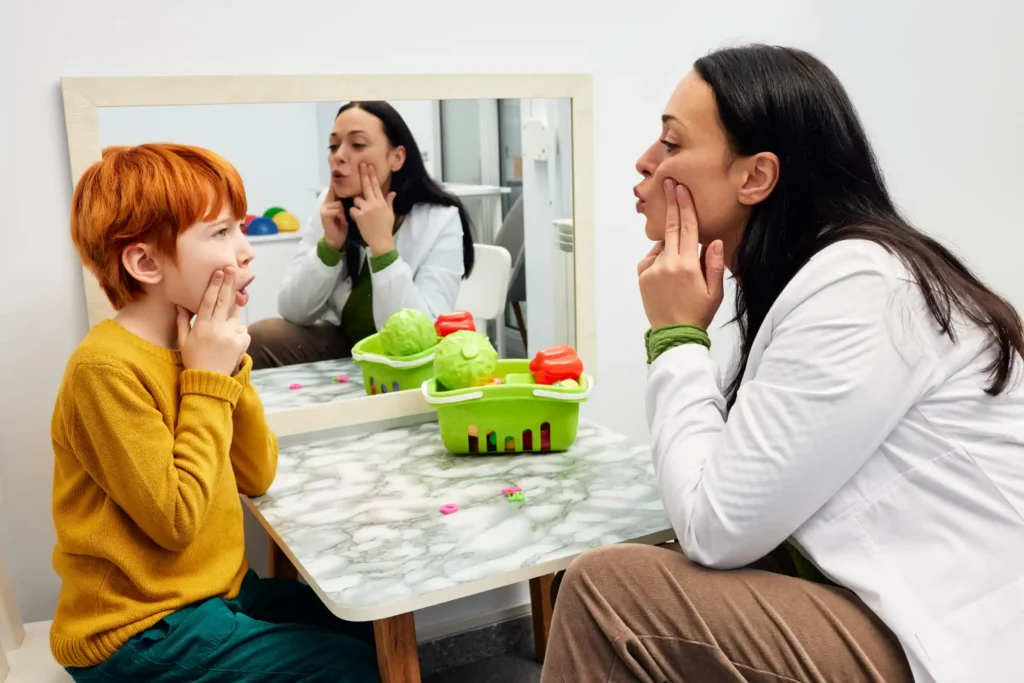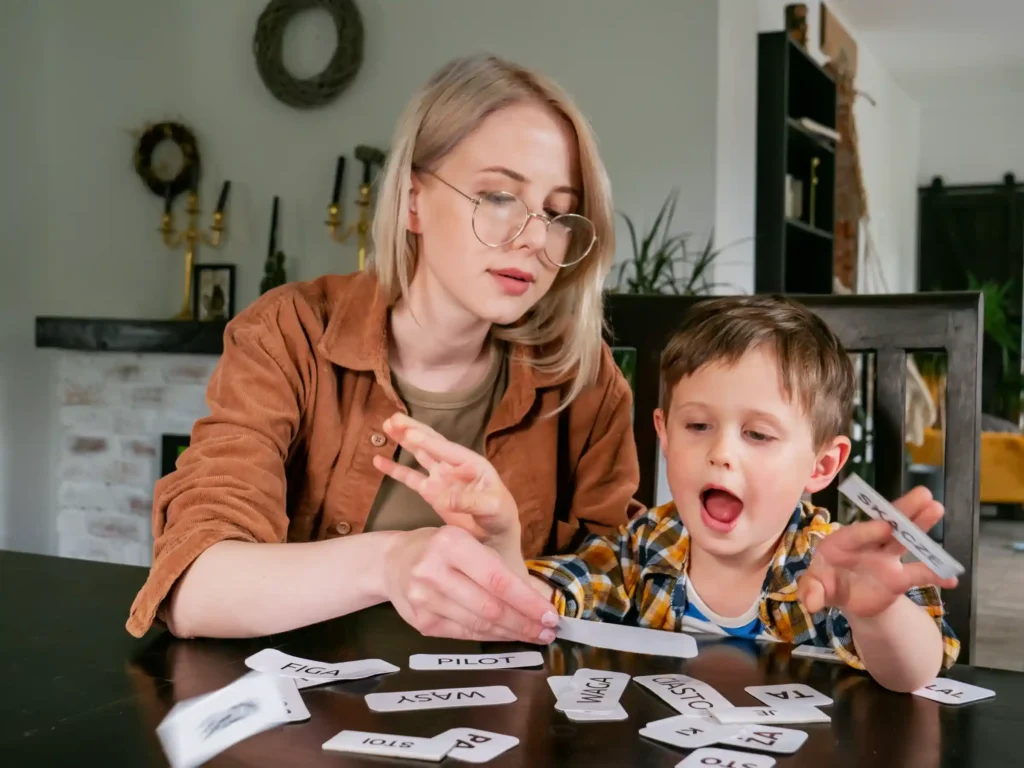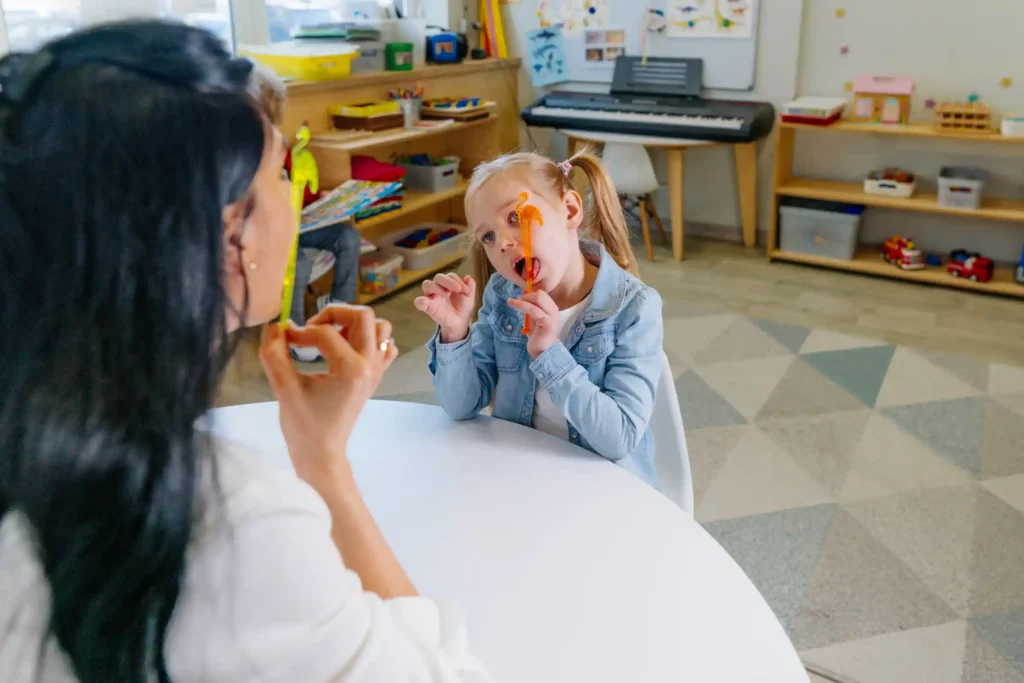(954) 577-3396
Mon - Fri : 8am - 5pm
Mon - Fri : 8am - 5pm

Speech therapy is a specialized service that focuses on improving challenges related to speech, language, communication, and swallowing disorders.
Speech therapy is beneficial for remediating, developing, and improving critical communication and language skills necessary to complete literacy tasks, engage in social communication, and achieve academic success in children and adolescents.
Speech therapy should be considered by parents who suspect their child has a communication weakness related to articulation, fluency, cognition, hearing impairment, language (use or understanding), voice, or social skills.
Speech therapists work with individuals across the lifespan and are familiar with developmental expectations and potential etiologies of communication disorders (e.g., autism spectrum disorder, learning disabilities, neurodevelopment disorders, neonatal problems, dyslexia, intellectual disabilities, cleft lip/palate, hearing impairment, cerebral palsy, traumatic brain injury, genetic disorders).
Speech-language screeners quickly identify areas of weakness that may warrant further evaluation.

